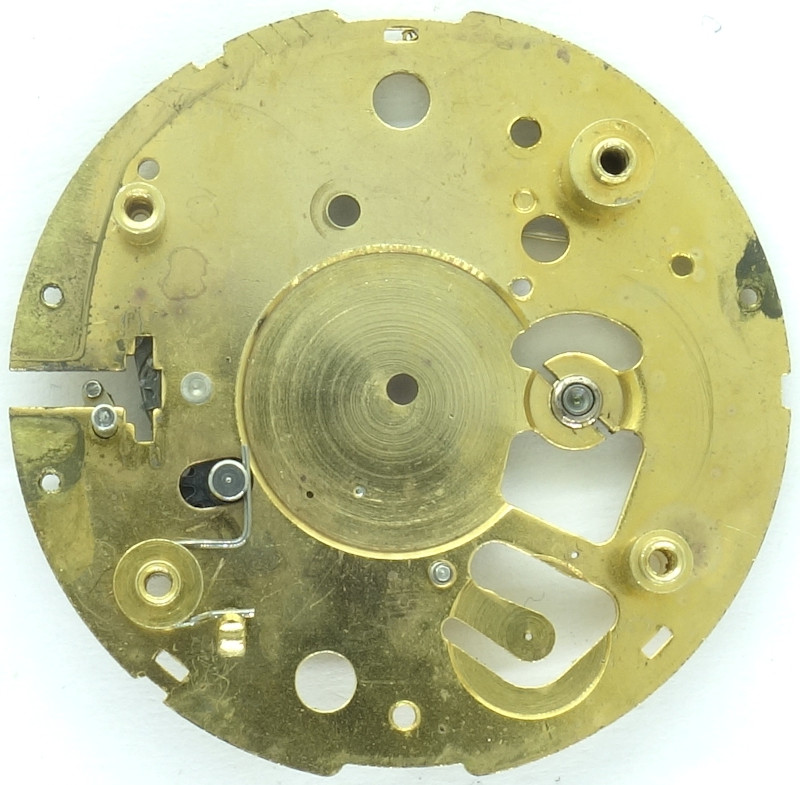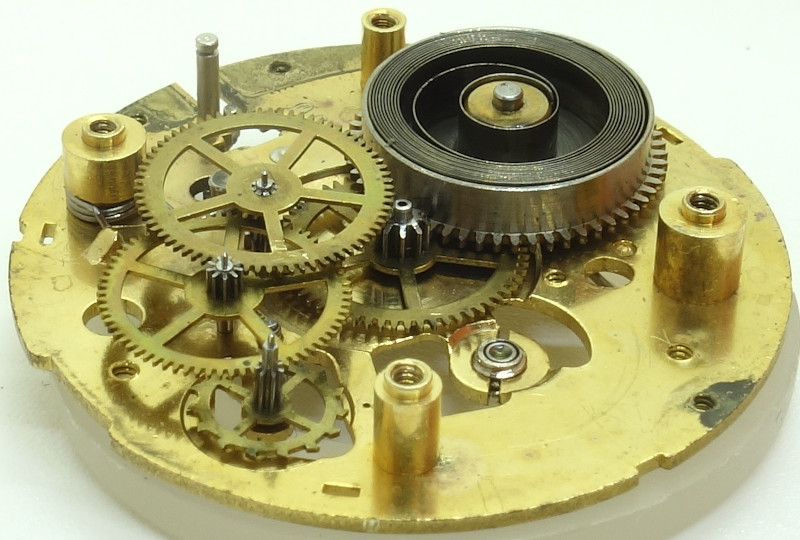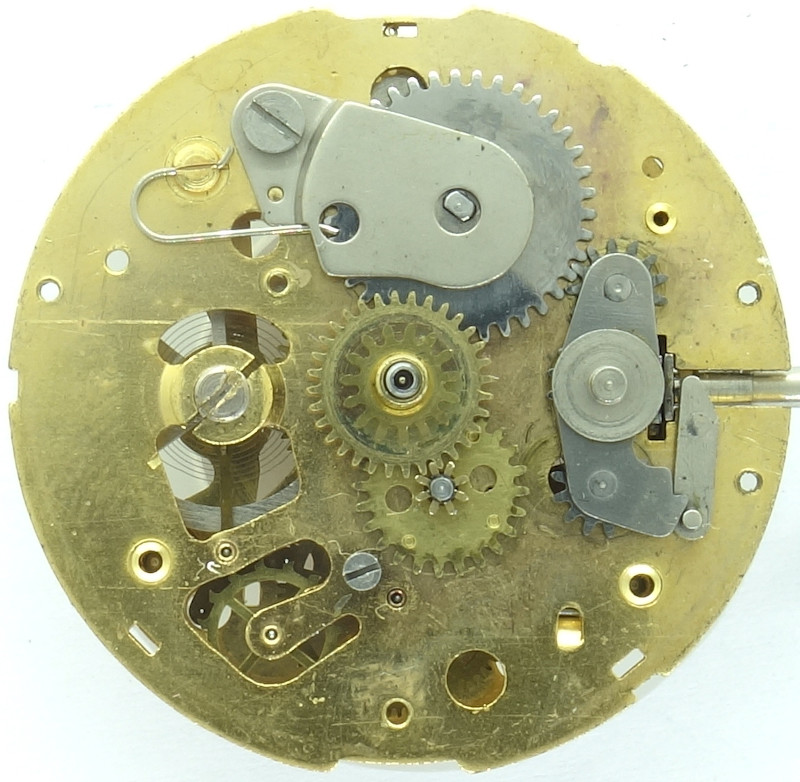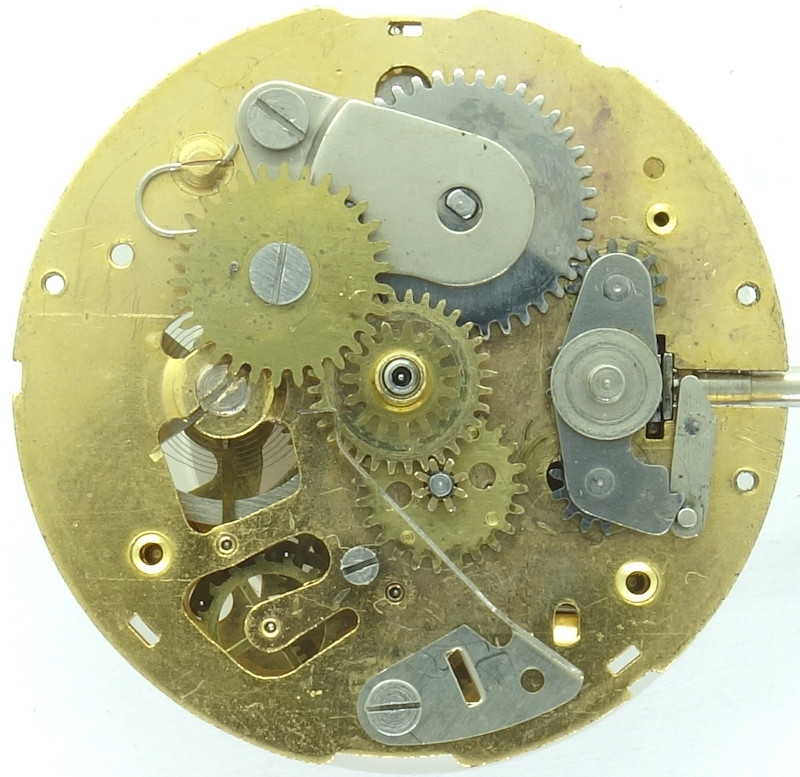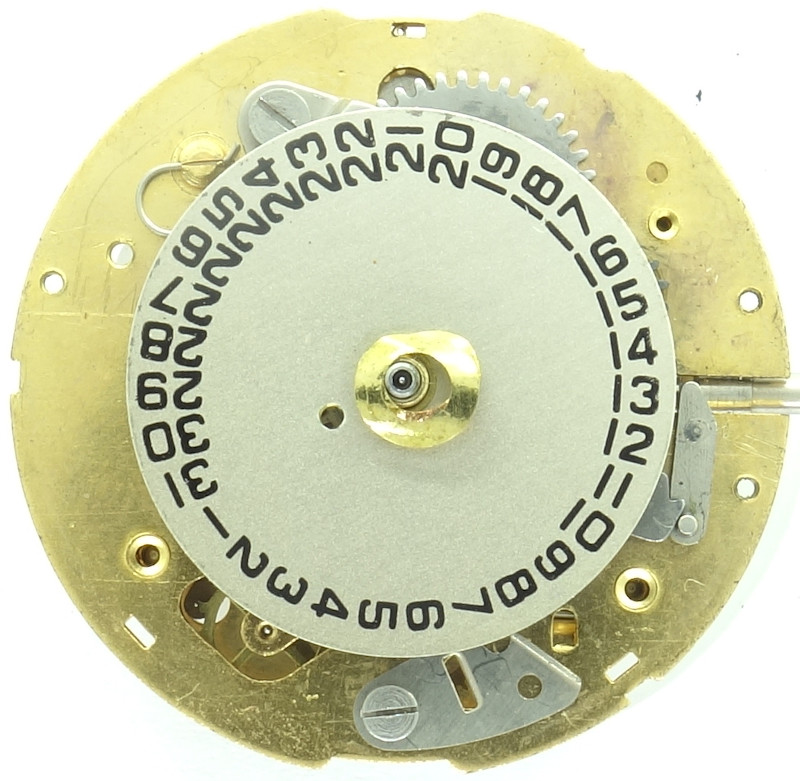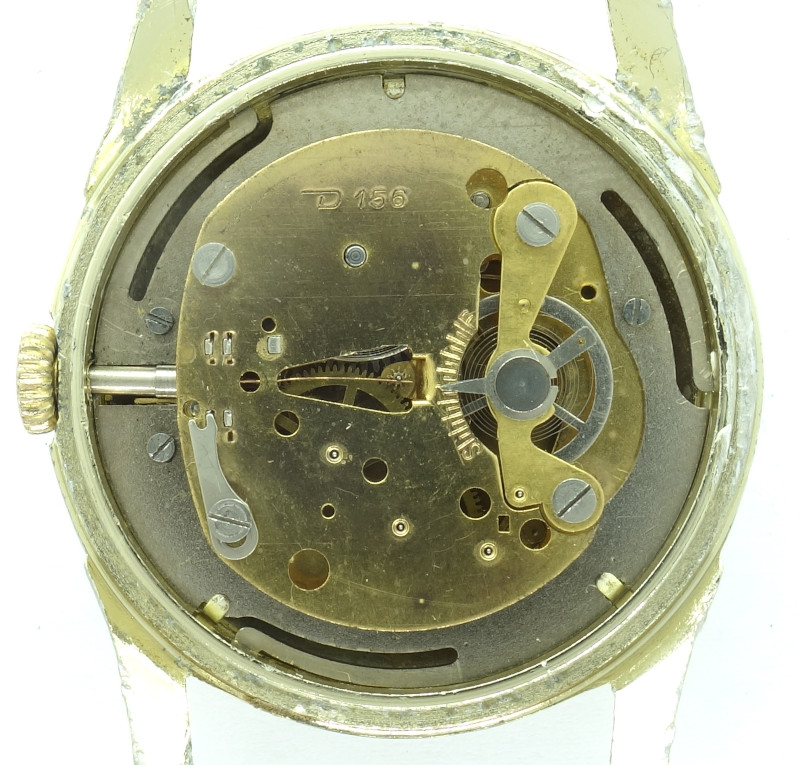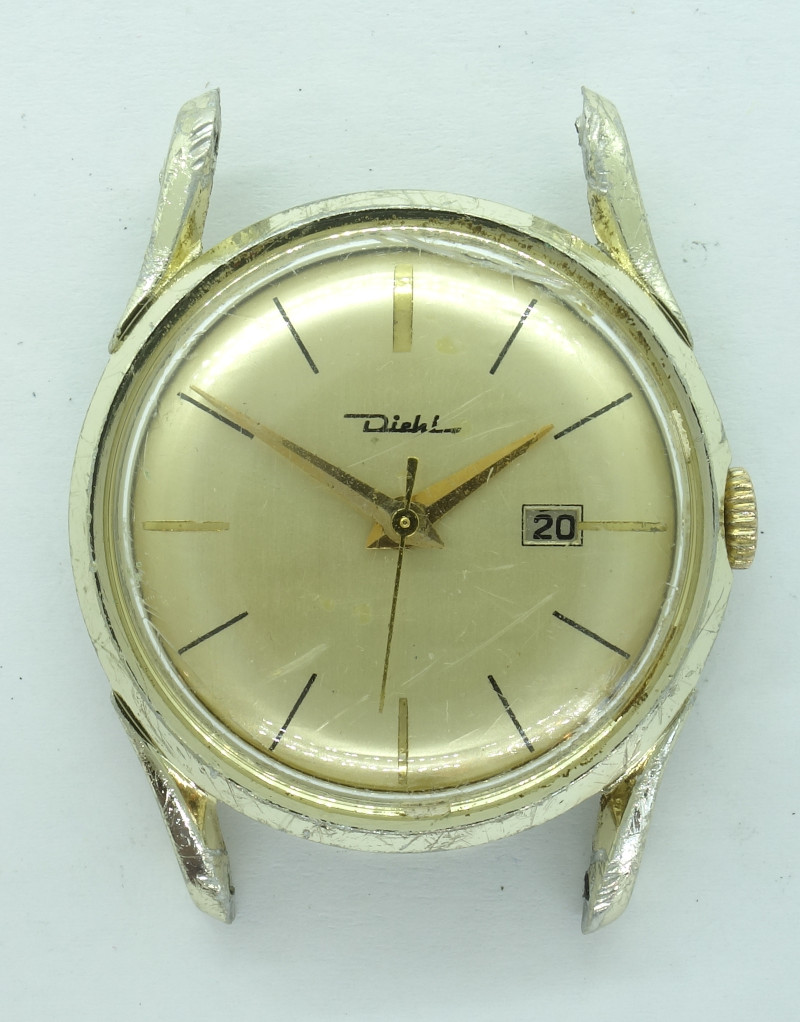Description
In 1956, Diehl bought the traditional german manufacturer Junghans with the result. that in almost all Diehl watches and clocks, Junghans movements were used, often in a simpler and cheaper version than those, which were sold under the renowned “Junghans” brand.
A real exot is the, probably exactly at that time launched, but not for too long made caliber 156, here in the version with center seconds and date indication, named Diehl 156 SC CLD.
It was produced by Junghans in a joint venture with Westclox, a manufacturer known for very cheap, disposable movements and is except a few details identical to the Westclox W4.
The execution of this zero-jewel pillar movement is ugly and crude, even the deepening for the center minute wheel is excentrical, which gives that plate an odd look.
The construction of this pin lever movement is classical and simple: The mainspring barrel, which is uncovered on its top, drives the center minute wheel, followed by the third wheel. This third wheel engages at the same time with the seconds wheel at 6 o’clock and with the center seconds pinion. Finally, there’s the escape wheel.
The construction of the indirect center seconds indication is a few years later also used on the UMF 23.
A simple three-leg anular balance is beared under the balance bridge, which also carries the upper bearing of the pin lever. It beats with 18000 A/h and can be regulated with a long regulator arm.
Since the balance wheel uses a thick v-conic pinion, there’s no need for a shock protection.
The dial side balance bearing can be adjusted in its height.
On the dial side, you see the riveted rocking bar winding system.
The ratched is also located on the dial side and consists only of a simple spring, which engages into the ratchet wheel. This wheel is simply stuck onto the mainspring barrel axle and held vertically in position by a simple and flat metal cock.
It’s hardly possible to go for less.
The switching wheel for the calendar engages with the double hour wheel and carries a pin for advancing and turning back the date disc. A long stamped spring locks the disc into position.
Another speciality of this movement is, that it is mounted onto a meal plate with three spring arms, resulting in a true diameter of almost 30mm. Junghans even claimed an utiliy model (Gebrauchsmuster) therefor.
In the lab
After a simple revision (cleaning and oiling), it performed again pretty well, almost like new.
Timegrapher result
For such a simple pin lever movement, the rates are not bad, especially in the horizontal positions. Without the large beat error, they might have been even better.| horizontal positions | |||
|---|---|---|---|
| dial up | +5 s/d | 185° | 4.8ms |
| dial down | +3 s/d | 183° | 4.1ms |
| vertical positions | |||
| crown right (12 up) | +-0 s/d | 152° | 3.0ms |
| crown up (3 up) | -20 s/d | 172° | 2.3ms |
| crown left (6 up) | -25 s/d | 183° | 4.1ms |
| crown down (9 up) | -60 s/d | 179° | 2.3ms |
Technical data
| Manufacturer: | Diehl |
| Caliber: | 156 SC CLD |
| Caliber base: | Diehl 156 |
| Size: | 11''' (measured: 29,6mm) |
| A/h: | 18000 |
| Escapement: | Pin lever |
| Balance types: | monometallic anular balance (three legs) |
| Shock protection(s): | none |
| Balance bearing / direction hairspring: | Clockwise |
| Moveable stud: | no |
| Adjust mechanism: | Long regulator arm |
| Construction: |
|
| Construction type: | pillar construction |
| Winding mechanism: | rocking bar winding system |
| Setting lever spring: | 3 holes |
| Features: |
|
| Production years: | 1956 - 1959 |
| References: | Flume: K2 - |
| Inventory number: | 22045 |

